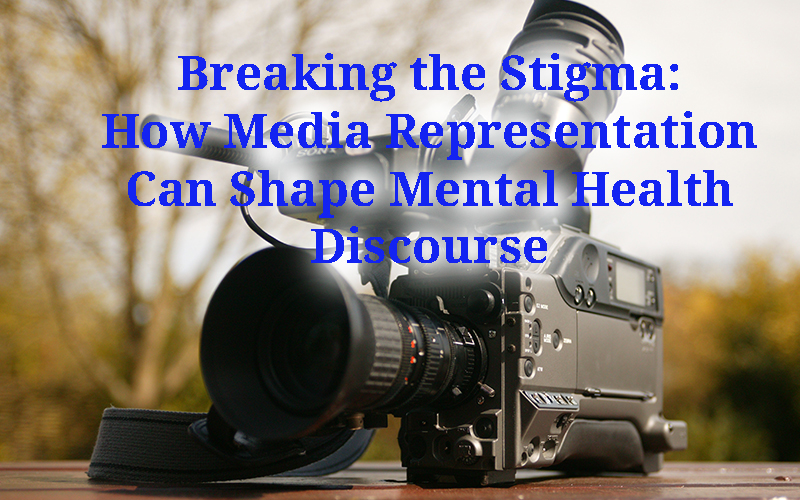Breaking the Stigma: How Media Representation Can Shape Mental Health Discourse. Media has an enormous influence on society, shaping perceptions, attitudes, and beliefs. By harnessing the power of storytelling and visual representation, media can shape public perceptions and influence social change.


In recent years, there has been a growing recognition of the importance of mental health and its impact on individuals and communities. While progress has been made in reducing the stigma surrounding mental health, there is still much work to be done. One powerful tool that can contribute to breaking the stigma is media representation. By portraying mental health issues accurately and compassionately, the media can shape the discourse surrounding mental health and promote understanding and empathy.
Media has an enormous influence on society, shaping perceptions, attitudes, and beliefs. It has the power to both perpetuate stereotypes and challenge them. Unfortunately, mental health has often been misrepresented in the media, perpetuating negative stereotypes and reinforcing stigma. Characters with mental health conditions are frequently depicted as dangerous, unpredictable, or simply dismissed as “crazy.” Such portrayals not only misrepresent the reality of mental health but also contribute to fear, misunderstanding, and discrimination.
However, things are slowly changing. Over the past decade, there has been a notable increase in media representations that aim to depict mental health issues more accurately and sensitively. When media accurately represents mental health, it has the potential to challenge stereotypes and generate empathy. By showcasing diverse experiences and highlighting the common humanity in all of us, media representation can break down the barriers that contribute to stigma. When viewers see relatable characters struggling with mental health, they may feel less alone in their own experiences or gain a better understanding of what their loved ones might be going through.
Media representation can also play a role in educating the public about mental health. It can provide accurate information, debunk myths, and promote help-seeking behaviors. When media depicts characters seeking therapy, reaching out for support, or engaging in self-care, it normalizes these actions and encourages viewers to do the same. By showing that recovery is possible and that seeking help is a sign of strength, media can inspire individuals to take their own mental health seriously.
Furthermore, media representation can influence public policy and resource allocation. When mental health is portrayed authentically and compassionately, it can generate public awareness and demand for better mental health services. This, in turn, can lead to increased funding, improved access to care, and a more supportive environment for individuals living with mental health conditions.
Of course, media representation alone cannot solve the complex issue of mental health stigma. It is just one piece of the puzzle. Other factors such as education, legislation, and community support are also crucial. However, media has a unique reach and impact that cannot be ignored. By harnessing the power of storytelling and visual representation, media can shape public perceptions and influence social change.
Media representation plays a vital role in shaping mental health discourse and breaking the stigma surrounding mental health. Accurate and compassionate portrayals in film, television, and other forms of media have the power to challenge stereotypes, generate empathy, educate the public, and influence policy. As consumers of media, we have a responsibility to demand accurate and sensitive portrayals of mental health. By doing so, we can contribute to a society that understands, accepts, and supports individuals with mental health conditions. Together, we can break the stigma and create a more inclusive and compassionate world.


Dr. Jyoti Kapoor
Founder-Director and Senior Psychiatrist
Manasthali











